As House impeachment investigators probe deeper into President Donald Trump’s alleged attempts to court foreign interference with the 2020 election, a dizzying array of Ukrainians and Americans—some already high-profile and others largely unknown to the general public until now—have emerged as key players. Many, including key White House officials and others close to the President, have been subpoenaed to appear before Congress—even as the White House has said it won’t cooperate with the Democrat-led inquiry.
The impeachment inquiry comes in the wake of a whistleblower complaint alleging that Trump asked Ukraine to investigate Democratic presidential candidate Joe Biden, and his son Hunter.
The story also continues to develop outside the House inquiry. The President’s personal lawyer, Rudy Giuliani, is reportedly under investigation by federal prosecutors, who are looking into whether the former New York mayor violated lobbying laws during his activities in Ukraine, according to reports that emerged from the New York Times. Giuliani is a “central figure” in carrying out Trump’s agenda in Ukraine, according to the whistleblower complaint. Giuliani has frequently denied allegations of wrongdoing and continued to say that the focus should be on Joe Biden and his son.
Hunter Biden, who is the focus of Trump and Giuliani’s unproven claims of corruption, announced Oct. 13 his intention to resign from the board of a Chinese investment company amid scrutiny of his foreign business dealings and whether he inappropriately benefited from the influence of his father. He has denied Trump’s accusations, saying that he did not discuss his business activities in China or Ukraine with his father.
Central to the impeachment inquiry is a July 25 phone call between Trump and the Ukrainian president, Volodymyr Zelensky. Zelensky has denied that he felt pressured to investigate Biden’s son, but many lawmakers are not convinced.
Here’s a breakdown of who’s who in the Ukraine investigation.
Hunter Biden
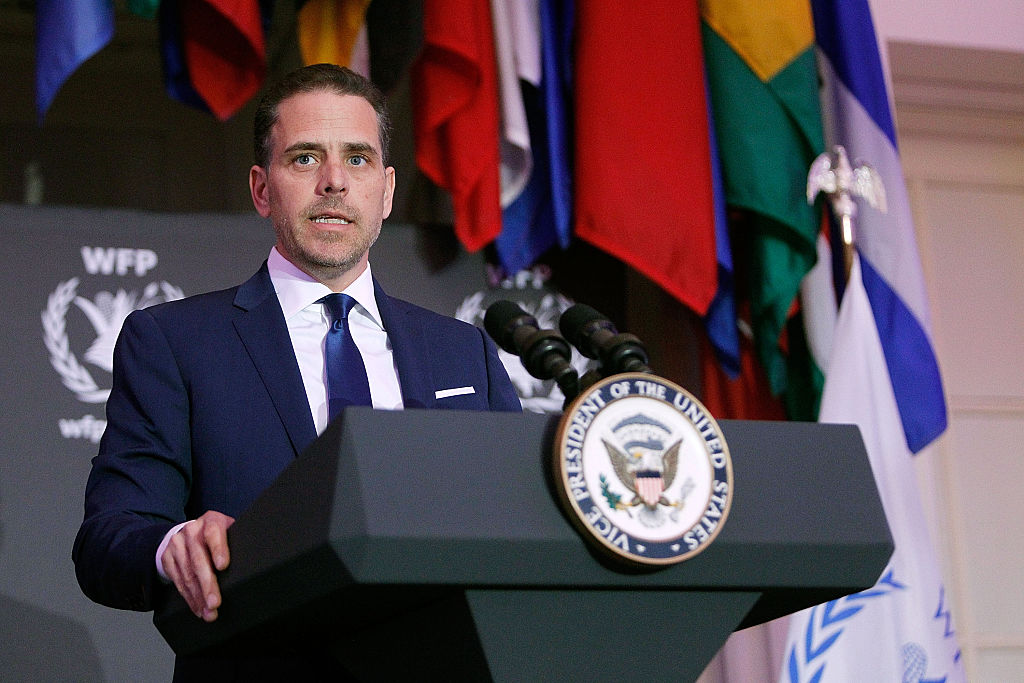
Who is he?
Hunter Biden, 49, is the younger son of former Vice President and 2020 presidential contender Joe Biden.
How is he involved?
Hunter Biden is at the center of Trump’s claims of corruption against his father—which the President and his allies continue to make without evidence. Joe and Hunter Biden are also key individuals in the whistleblower complaint, which accuses Trump of pressuring Ukraine to investigate them.
Hunter Biden’s position as a paid board member for a Ukrainian energy company has raised questions about a possible conflict of interest for his father. The younger Biden earned a reported $50,000-a-month salary from Ukrainian energy company Burisma for his advice on corporate governance and best practices.
Trump has suggested in unproven but nettlesome allegations that Hunter Biden was under Ukrainian prosecutors’ scrutiny for corruption and that his father protected him by pressuring Ukraine to oust Viktor Shokin, the prosecutor who had opened an investigation into the owner of Burisma.
In a White House summary of the July phone call between Trump and Zelensky, the American President was noted as saying, “there’s a lot of talk about Biden’s son” and Joe “Biden went around bragging that he stopped the prosecution so if you can look into it… it sounds horrible to me.”
Claims that Biden stepped in to block the inquiry are widely disputed, including by Joe Biden himself.
In a March 2016 trip to Kiev, Joe Biden had told Ukrainian leadership to fire Shokin, the country’s top prosecutor. Biden, like other officials in the U.S. and Western nations, believed Shokin was not doing enough to root out corruption. With international pressure mounting, Shokin was replaced later that month after a vote in Ukraine’s parliament.
Shokin had previously opened an investigation into the owner of Burisma, the Associated Press reported. According to the National Anti-Corruption Bureau of Ukraine, Shokin’s investigation of Burisma had focused on a period before Hunter Biden joined the board, and was effectively over by the time Joe Biden called for Shokin’s removal, according to Reuters.
Hunter Biden joined the board of Ukranian energy company Burisma in 2014, but is no longer on the board, as of early 2019.
Hunter Biden’s hiring in 2014 coincided with the launch of a new effort by Burisma to lobby the U.S. Congress about the role of the company in Ukraine and the country’s quest for energy independence. A Burisma spokesman said at the time that Hunter Biden had not been involved in contacting members of Congress or the Obama Administration about the company.
What has he said?
Hunter Biden has denied using his influence with his father to help Burisma or a Chinese investment company called Bohai Harvest RST Partners (BHR.)
He said in a statement on Oct. 13 through his lawyer that he “undertook these business activities independently” and “did not believe it appropriate to discuss them with his father, nor did he.” He also announced in the statement that he would step down from the board of directors of the Chinese company on or by the end of October. The statement said that Hunter Biden “never anticipated the barrage of false charges against both him and his father” by Trump and “will continue to keep his father personally uninvolved in his business affairs.”
The statement added that if Joe Biden is elected president, Hunter would “readily comply with any and all guidelines or standards a President Biden may issue to address purported conflicts of interest, or the appearance of such conflicts, including any restrictions related to overseas business interests.”
Hunter Biden, has however, admitted “poor judgment” in taking a position on the board of Burisma but denies any wrongdoing. The younger Biden said in an interview on ABC’s Good Morning America that his mistake was not due to an “ethical lapse.”
Joe Biden’s campaign has also said that the former Vice President’s work in foreign policy was not affected by his son’s activities in the country and they never discussed it either, the New York Times reported.
Joe Biden has also denied the president’s allegations, saying that Trump was “lying about his family” in a fundraising message.
Rudy Giuliani
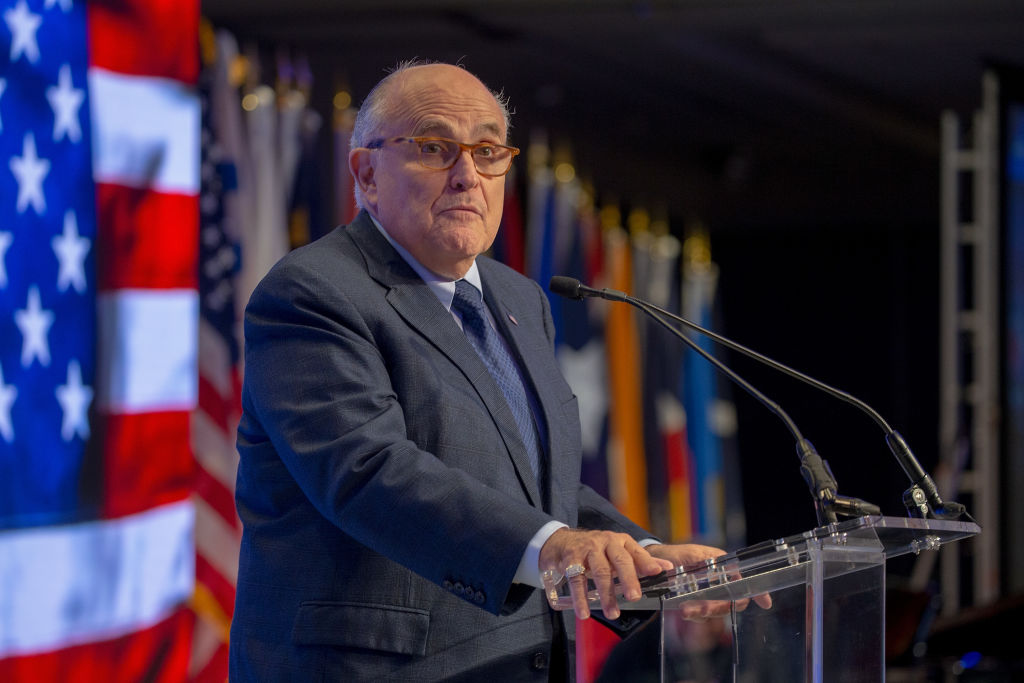
Who is he?
Rudy Giuliani is the President’s personal lawyer and the former mayor of New York City.
How is he involved?
The whistleblower complaint describes Rudy Giuliani as a “central figure” in Trump’s alleged attempts to pressure Ukraine to investigate Biden and his son.
Giuliani was subpoenaed on Sept. 30 by the House Intelligence Committee. The subpoena stated that the committee is investigating “credible allegations” that Giuliani “acted as an agent of the President in a scheme to advance his personal political interests by abusing the power” of his office.
Giuliani said through his lawyer in an Oct. 15 letter to the House Intelligence Committee that he would not participate in the impeachment inquiry, calling it “unconstitutional, baseless and illegitimate.”
“The subpoena is overbroad, unduly burdensome, and seeks documents beyond the scope of legitimate inquiry,” the letter stated.
Giuliani also cited executive privilege, even though he is the President’s personal lawyer and does not work for the White House.
The letter issuing a subpoena had highlighted Giuliani’s declaration on CNN that he “asked the government of Ukraine” to investigate Biden—a claim that Giuliani appeared to walk back and forth while on air. When prodded by anchor Chris Cuomo to clarify his position, Giuliani eventually said he asked Ukraine to “investigate the allegations that relate to the false charges against” Trump and that “those allegations tangentially involve Biden.”
House investigators, in a subpoena, also asserted that Giuliani said he possessed evidence (text messages, phone records and other communications) suggesting that “other Trump Administration officials may have been involved in this scheme” and demanded that he produce these “communications” and “other related documents” by Oct. 15.
The whistleblower complaint alleges that in several instances, Giuliani unofficially reached out to Ukrainian officials and relayed messages to and from Trump.
The whistleblower complaint said Giuliani’s alleged interference created so much confusion and harm that U.S. State Department officials allegedly spoke with Giuliani in an effort to “contain the damage” to America’s national security.
They also met with members of the Ukrainian administration to help them understand and respond to inconsistent messages received from official channels and through Giuliani, according to the whistleblower.
Giuliani’s activities in Ukraine have also reportedly sparked a federal investigation, according to The New York Times. The Times reported that prosecutors are looking into possible lobbying violations.
Two of Giuliani’s former associates have also been arrested. Lev Parnas and Igor Fruman, two Florida businessmen who reportedly helped Giuliani push for an investigation into Hunter Biden in Ukraine, were charged Oct. 10 with federal campaign finance violations.
What has he said?
Giuliani told CNN on Oct. 12 that he was unaware of any federal investigation into him, calling the idea of an investigation a “political attack.” After CNN asked him if he was under investigation, he responded: “No, nothing but leaks, which has to tell you whether they are or are not investigating, it’s a political attack. Otherwise, why leak it?” Giuliani said. “If it’s an appropriate law enforcement investigation, you try to keep it secret so the subjects aren’t alerted.”
Giuliani has been defiant in the face of allegations of wrongdoing, and told CNN the day the whistleblower’s complaint was released that he has “no knowledge of any of that crap.”
He specifically denied that State Department officials spoke with him to “contain the damage.” “At no time did either one of them say they wanted to ‘contain damage,’” Giuliani told CNN.
Giuliani has also said multiple times that he would only testify in relation to the impeachment inquiry if Trump gives him permission and that the president “was framed by the Democrats,” the Associated Press reports.
Giuliani has continued to say in television appearances that the focus should be on Joe Biden and his son’s private business dealings in Ukraine—despite no evidence of wrongdoing. He has been emphatic about his alleged innocence, even telling The Atlantic in an interview that “It is impossible that the whistle-blower is a hero and I’m not. And I will be the hero! These morons—when this is over, I will be the hero.”
The Biden campaign has reached out to television networks, demanding that Giuliani be kept off the air so he can no longer “spread false, debunked conspiracy theories on behalf of Donald Trump,” the New York Times reported.
William Barr
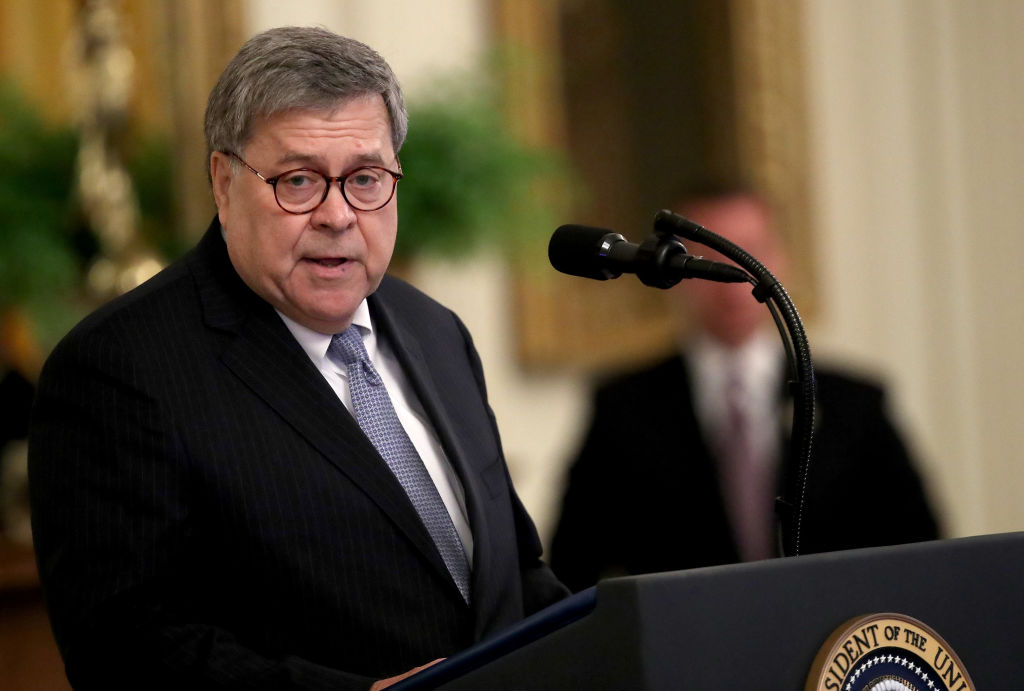
Who is he?
William Barr is Attorney General of the United States — making him the nation’s top law enforcement officer and the head of the U.S. Department of Justice. He was appointed to the position by Trump on February 2019 and confirmed by a 54-45 vote in the Senate.
How is he involved?
The whistleblower complaint alleged that Barr “appears to be involved” with Trump’s alleged efforts to pressure the Ukranian government.
The complaint did not specifically detail Barr’s involvement, as it did with Giuliani. But it did state that White House officials with direct knowledge of the call between Trump and Zelensky mentioned that the President pressured Zelensky to meet Barr, who was “named explicitly” as the President’s “personal envoy,” along with Giuliani.
Trump suggested to Zelensky during the July phone call that he follow up with the Attorney General about looking into Biden and his son, according to a summary of the conversation released by the White House. “There’s a lot of talk about Biden’s son, that Biden stopped the prosecution and a lot of people want to find out about that so whatever you can do with the Attorney General would be great,” the summary noted Trump as saying. That document also mentioned that Trump had told Zelensky that he would tell Barr to call him.
Barr’s possible involvement has raised concerns about his impartiality among key players related to the inquiry. Speaker Nancy Pelosi said last week that Barr had “gone rogue”, was part of a “coverup of the coverup” and questioned his ability to make decisions “about how the complaint would be handled.”
Barr was previously criticized for how he handled the Mueller report, with some Democrats accusing him of choosing to “be the President’s lawyer,” instead of maintaining a degree of necessary independence from the White House.
The Justice Department said Monday that Trump recently asked the Australian prime minister and other foreign leaders to help Barr investigate how the Russia probe began, according to the Associated Press.
Barr assigned U.S. Attorney John Durham to investigate the origins of the probe.
What has he said?
The Justice Department has denied that Barr ever spoke with Trump “about having Ukraine investigate anything related to” Biden or his son in a statement last week.
“The Attorney General has not communicated with Ukraine – on this or any other subject,” said Kerri Kupec, spokesperson for the Department of Justice. “Nor has the Attorney General discussed this matter, or anything relating to Ukraine, with Rudy Giuliani.”
Volodymyr Zelensky
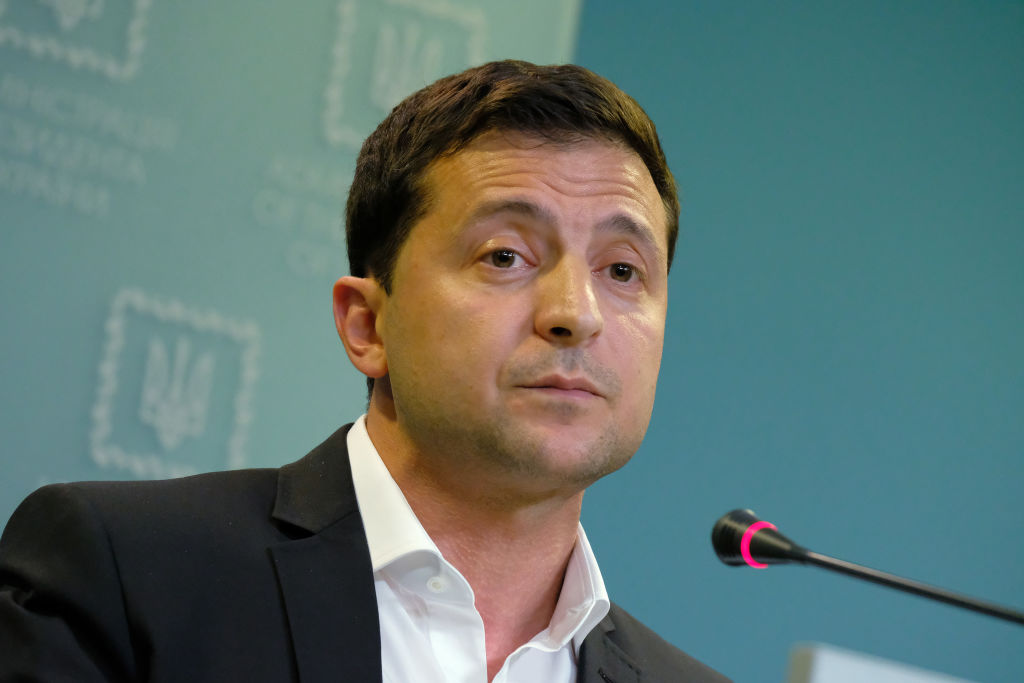
Who is he?
Volodymyr Zelensky, a comedian who formerly played the President of Ukraine on television, was elected to the office in reality earlier this year with 73% of the vote — the highest margin in the country’s post-Soviet history. He is a member of the Servant of the People party (which he founded, and named after his TV show). His party holds a majority of seats in the Ukrainian parliament. His campaign strongly emphasized fighting the country’s endemic corruption.
How is he involved?
Zelensky was on the other end of the Trump phone call that sparked the whistleblower’s complaint. The complaint said that Trump had used the call “to pressure the Ukrainian leader to take actions to help the President’s 2020 reelection bid” by pushing Zelensky to investigate Joe Biden, Hunter Biden and others.
House Speaker Nancy Pelosi cited allegations that Trump requested that Zelensky “take actions which would benefit [Trump] politically” in her announcement that the House had launched a formal impeachment inquiry into the President’s conduct.
The whistleblower’s complaint also alleged that Zelensky met with the U.S. Special Representative for Ukraine, Kurt Volker, and U.S. Ambassador to the European Union Gordon Sondland, who talked to him about how to “navigate” the President’s demands. U.S. officials also said that Zelensky’s advisors met with Giuliani, the complaint said.
The Ukrainian leadership was “led to believe” that whether or not Zelensky would have a call with Trump hinged on Zelensky’s “willingness to ‘play ball’” with the issues Giuliani and Lutsenko had raised, the whistleblower complaint said.
What has he said?
Zelensky has denied that anyone pressured him to investigate Biden’s son. Sitting with Trump at the United Nations on Sept. 25, Zelensky declared “nobody pushed me” and said that the call with Trump was “normal.”
He added that he does not have the authority to put pressure on Ukrainian law enforcement, even if he had been pressured.
“We have an independent country and independent general security. I can’t push anyone,” Zelensky said.
Mike Pompeo
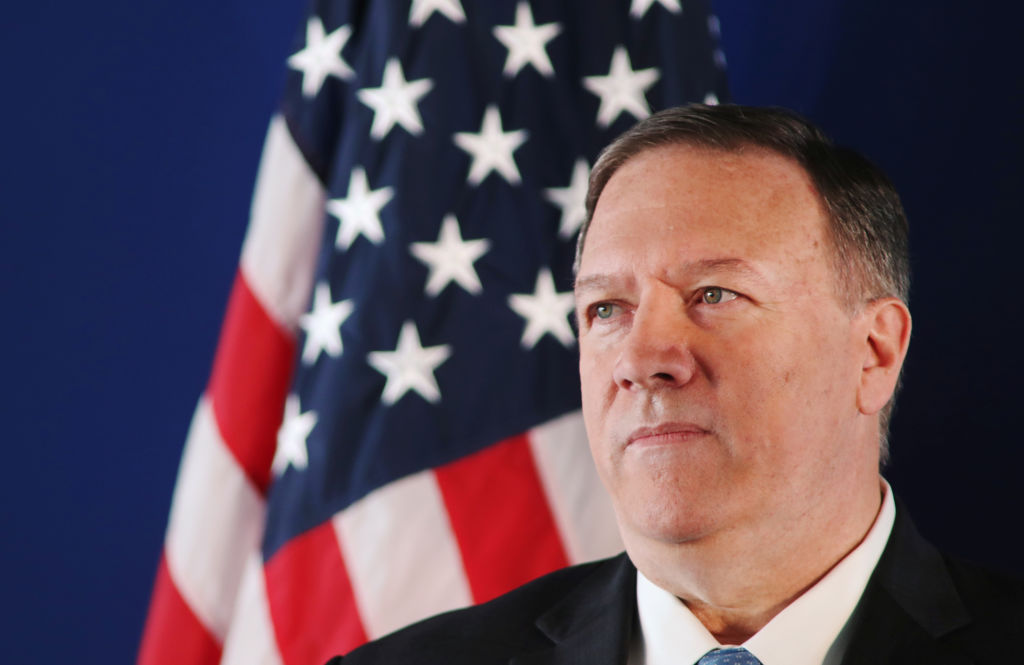
Who is he?
Mike Pompeo is Secretary of State. Trump nominated him for the position in March 2018 and he was confirmed by a 57-42 vote in the Senate.
How is he involved?
Pompeo was the first top Administration official to receive a congressional subpoena related to the President’s impeachment inquiry. He failed to meet the Oct. 4 deadline set forth by Congress, according to an official on the House Foreign Affairs committee, who noted that the State Department had contacted the committees. Pompeo had said on Oct. 5 that he had sent an “initial response” to the subpoena, the Washington Post reported.
Text messages appear to show that Pompeo was closely involved in the effort to use a White House visit — an invitation that would confer status upon Ukraine’s president — as leverage with Zelensky.
Pompeo has confirmed that he was part of the July phone call between Trump and Zelensky upon which the impeachment inquiry rests. He is now on the receiving end of questions from House Democrats about whether his department was entangled in Trump’s alleged attempts to pressure Ukraine.
Lawmakers wrote to Deputy Secretary of State John Sullivan on Oct. 1, condemning Pompeo for trying to block testimony from current and former state department officials. They said Pompeo now has “an obvious conflict of interest” having participated in the July phone call, which they say makes him a “fact witness” in the inquiry.
What has he said?
Pompeo said during an Oct. 2 press conference that he “was on the phone call” between Trump and Zelensky. The statement came just days after the Wall Street Journal reported he was listening in on the call. He had previously evaded the question of his involvement in an interview with ABC’s Martha Raddatz. Pompeo said at the Oct. 2 news conference that the Trump administration’s policy toward Ukraine was “about helping Ukrainians get graft and corruption out.”
Pompeo has defended the President’s call with Zelensky, saying it was a legitimate discussion of foreign policy issues and corruption. He has also criticized congressional investigators’ requests for more information about the call, saying they “can be understood only as an attempt to intimidate, bully, and treat improperly the distinguished professionals of the Department of State.”
Pompeo told reporters in Greece in October that the State Department would do “all the things required to do by law.”
Mike Pence
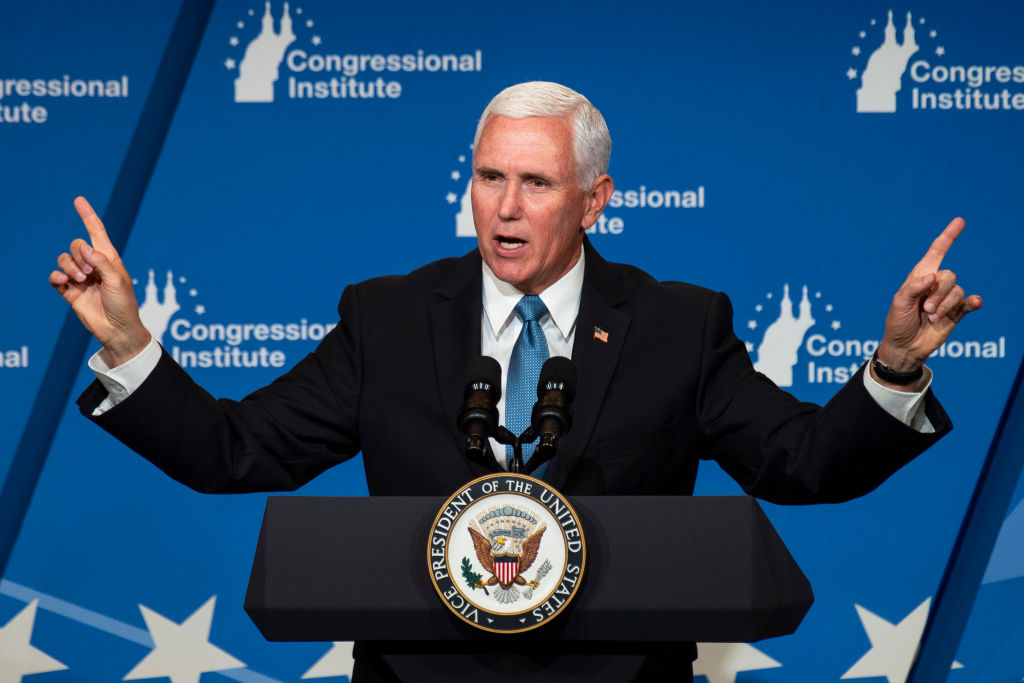
Who is he?
Mike Pence is Vice President of the United States and former governor of Indiana.
How is he involved?
House investigators are looking into Pence as part of their impeachment inquiry. They requested a long list of documents from the Vice President in an Oct. 4 letter, noting that “public reports have raised questions about any role (he) may have played in conveying” the President’s “stark message to the Ukrainian president.”
Lawmakers mention, in particular, a staff member who “may have participated directly” in the July phone call between Trump and Zelensky, in addition to documents that Pence may have “obtained and reviewed,” including the record of a meeting with Zelensky in Warsaw in September 2019 in which they “reportedly spoke about the Administration’s hold on U.S. security assistance to Ukraine.”
Pence has until Oct. 15 to produce the documents, the letter stated, adding that refusing to comply with the request, “including at the direction” of the President or the White House, would count as “evidence of obstruction” of the inquiry.
The letter also cited a Washington Post report indicating that Pence’s national security adviser, retired Lt. Gen. Keith Kellogg, had been “monitoring” the July phone call.
What has he said?
Pence has defended Trump’s position on Ukraine, saying in public remarks that he thinks “the American people have a right to know” if Joe Biden or his family profited from his position as Vice President under the Obama Administration. “That’s about looking backwards and understanding what really happened,” Pence said.
Pence has doubled down on criticism of Biden, saying there was “clearly a quid-pro-quo,” repeating Trump’s unproven allegations that Biden pressured Ukrainian officials to fire an investigator looking into his son’s business dealings in the country. He added: “I mean, the fact that my predecessor had a son who was paid $50,000 a month to be on a Ukrainian board at the time that Vice President Biden was leading the Obama Administration’s efforts in Ukraine — I think is worth looking into.”
In response to Congress’ request for documents, Pence’s press secretary said that “given the scope, it does not appear to be a serious request but just another attempt by the ‘Do Nothing Democrats’ to call attention to their partisan impeachment,” the New York Times reported.
Gordon Sondland
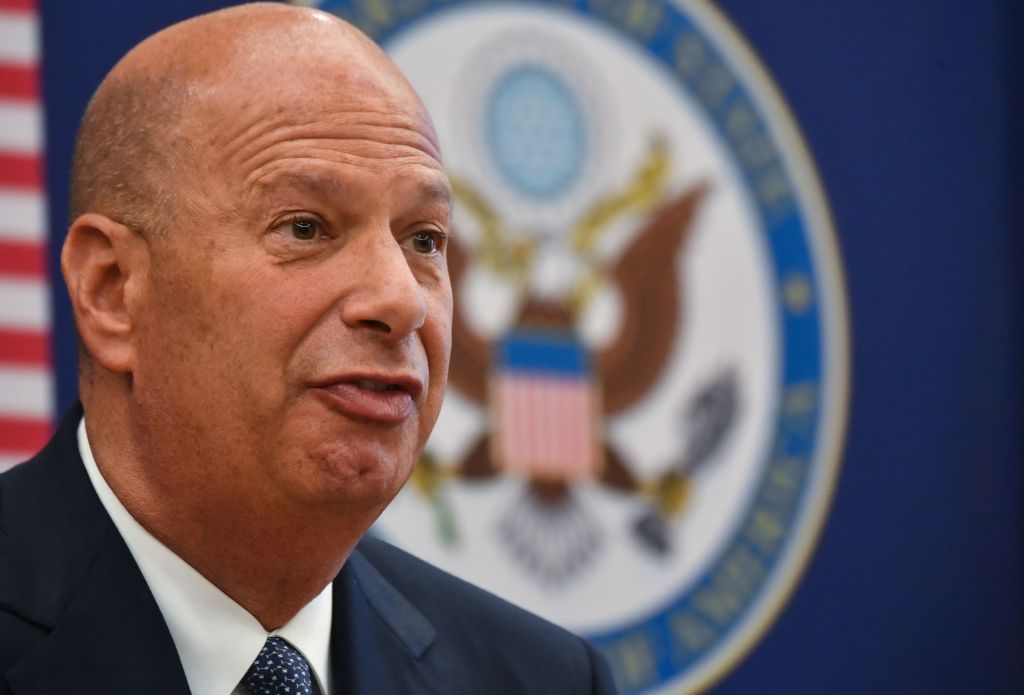
Who is he?
Gordon Sondland is the United States Ambassador to the European Union and a Portland businessman, hotelier and longtime GOP donor.
How is he involved?
The whistleblower’s complaint alleged that various U.S. officials told him that Sondland, along with former U.S. ambassador to Ukraine Kurt Volker, met Ukranian President Zelensky and had reportedly given “advice” to Ukranian leadership about how to “navigate” Trump’s demands.
Sondland was supposed to testify Oct. 8 before House investigators regarding what he knew about Trump’s alleged efforts to investigate the Bidens, but was prevented from doing so at the last minute by the Trump Administration. Lawmakers responded to Sondland’s barring in a statement, saying that they “consider this interference to be obstruction of the impeachment inquiry” and that they will be issuing a subpoena to Sondland “for both his testimony and his documents.”
Sen. Ron Johnson (R—Wis) recently told the Wall Street Journal that Sondland told him in August that the U.S. held up nearly $400 million in aid as part of a deal pressuring Ukraine to help Trump with an investigation related to American elections.
Text messages given to Congress by Volker and made public Oct. 3 show that Sondland had been involved in discussions about withholding U.S. aid to Ukraine. Former U.S. Ambassador to Ukraine Bill Taylor had texted Sondland on Sept. 9 that he thinks “it’s crazy to withhold security assistance for help with a political campaign.” Sondland tried to ease his concerns. He replied that the President “has been crystal clear no quid pro’s of any kind.” He added, “President is trying to evaluate whether Ukraine is truly going to adopt the transparency and reforms that President Zelensky promised during his campaign,” before advising that they “stop the back and forth by text.”
What has he said?
Sondland’s attorney, Robert Luskin, said in a statement that the ambassador is “profoundly disappointed that he will not be able to testify,” the Associated Press reported. “Ambassador Sondland traveled to Washington from Brussels in order to prepare for his testimony and to be available to answer the Committee’s questions,” the statement said.
Trump weighed in on why Sondland was stopped from testifying, tweeting that he would “love” to send him to testify “but unfortunately he would be testifying before a totally compromised kangaroo court.”
Fiona Hill
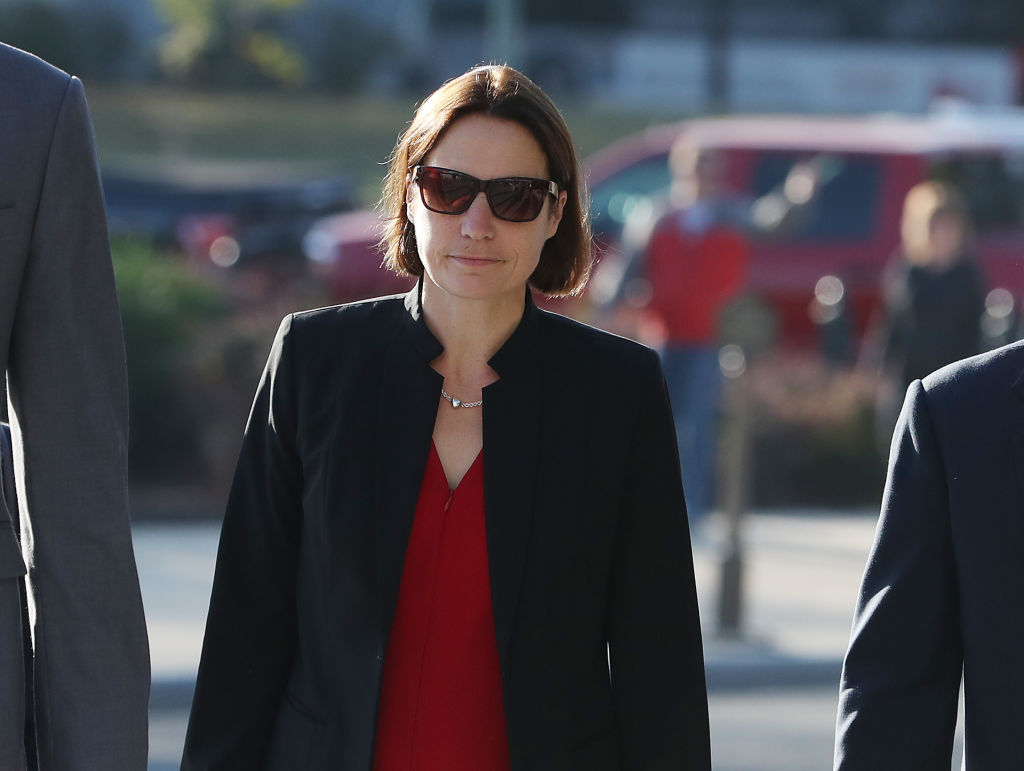
Who is she?
Fiona Hill is the former White House Advisor on Russia and a foreign affairs expert who directed the Brookings Institution’s Center on the United States and Europe from 2009-2017. She left her position on the National Security Council this summer.
How is she involved?
Fiona Hill testified before House impeachment investigators on Oct. 14 behind closed doors for more than 10 hours, alerting lawmakers to serious concerns then-National Security Adviser John Bolton expressed about the Trump Administration’s dealings in Ukraine, the Associated Press reported.
A tweet from her lawyer on Oct. 14 had stated that she would “comply and answer questions” in response to the congressional subpoena she was issued.
What has she said?
Hill told lawmakers during her testimony that Bolton described the President’s personal lawyer as a “hand grenade who is going to blow everybody up,” according to the AP, which cited a person familiar with the testimony who requested anonymity. Hill also said Bolton directed her to meet at least twice with National Security Council lawyer John Eisenberg about Trump’s dealings with Ukraine and that Bolton told her that he was not part of “whatever drug deal” Gordon Sondland, the U.S. Ambassador to the E.U., and acting White House Chief of Staff Mick Mulvaney were allegedly “cooking up,” the AP reported.
Marie Yovanovitch
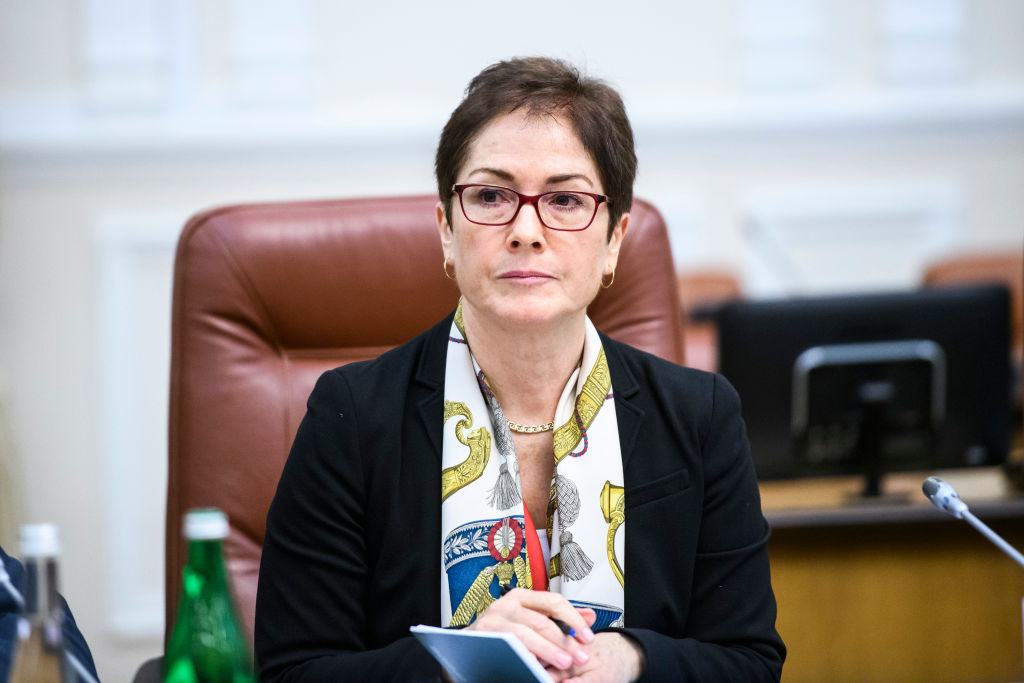
Who is she?
Yovanovitch is a career diplomat who served as the U.S. Ambassador to Armenia and Kyrgyzstan before being named ambassador to Ukraine in Aug. 2016.
She was recalled from the post in May. Eliot L. Engel, the Chairman of the House’s Foreign Affairs Committee, and House Majority Leader Steny Hoyer, in a joint statement, called the White House decision to recall her a “political hit job.”
How is she involved?
The whistleblower’s complaint said that Yovanovitch might have lost her ambassadorship as a result of accusations against her by Lutsenko.
The complaint notes that Yovanovitch was among the targets of allegations made by Lutsenko and his colleagues in interviews with the Hill. According to the complaint, the U.S. Embassy in Kyiv, and Yovanvitch in particular, had been accused of obstructing corruption cases by providing a “do not prosecute” list and by blocking Ukrainian prosecutors from traveling to the United States to provide “evidence” about the 2016 election.
The State Department denied that Yovanovitch was recalled early, saying in a statement to reporters that she was “concluding her three-year diplomatic assignment in Kiev in 2019 as planned.”
The complaint also said that Yovanovitch’s time as ambassador was “curtailed because of pressure stemming from Mr. Lutsenko’s accusations.”
Trump criticized Yovanovitch during his phone call with the Ukrainian President. According to the White House’s summary of the call, Trump said, “The former ambassador from the United States, the woman, was bad news and the people she was dealing with in the Ukraine were bad news.” Yovanovitch is the first and only female ambassador to Ukraine.
What has she said?
Yovanovitch testified behind closed doors as part of the impeachment inquiry on Oct. 11 and said about her removal in prepared remarks obtained by TIME that she was “incredulous that the U.S. government chose to remove an ambassador based, as best as I can tell, on unfounded and false claims by people with clearly questionable motives.” She also testified that she never directed anyone to “refrain from investigating or prosecuting actual corruption.”
Yovanovitch said she was “abruptly told” in late April to come back to Washington from Ukraine. She said she learned that the “President had lost confidence in her” from the Deputy Secretary of State, who she says also told her that there was a “concerted campaign against” her and that she had done “nothing wrong,” according to a copy of her opening remarks.
Yovanovitch also described the State Department as “attacked and hollowed out from within” and warned Congress about the harm that she said will come “when bad actors in countries beyond Ukraine see how easy it is to use fiction and innuendo to manipulate our system.” The only winners, in this case, will be the “strategic adversaries” to the U.S., like Russia, she said.
Lev Parnas and Igor Fruman
Who are they?
Lev Parnas and Igor Fruman are two Florida businessmen and associates of Rudy Giuliani, the President’s personal lawyer.
How are they involved?
Parnas and Fruman reportedly helped Giuliani push for an investigation into Hunter Biden in Ukraine. They were charged Oct. 10 with federal campaign finance violations.
Parnas and Fruman were charged with four counts by the U.S. Attorney for the Southern District of New York. The charges included conspiracy to violate the ban on foreign donations, falsifying records and lying to the Federal Election Commission about their political donations, which allegedly included $325,000 funnelled toward a group supporting Trump’s reelection, according to the charges.
Geoffrey Berman, the U.S. Attorney for the Southern District of New York, alleged the duo “sought political influence not only to advance their own financial interests but to advance the political interests of at least one foreign official—a Ukrainian government official who sought the dismissal of the U.S. ambassador to Ukraine” — Marie Yovanovitch.
Parnas and Fruman had “no significant prior history of political donations” the indictment also said.
Shortly after the indictment became public, House impeachment investigators issued subpoenas to Parnas and Fruman. Lawmakers cited the Washington Post’s reports that the duo were reportedly “assisting Giuliani’s push to get Ukranian officials” to investigate Biden and his son, “as well as Giuliani’s claim that Democrats conspired with Ukrainians in the 2016 campaign.” They also cited a Politico report, noting that Parnas and Fruman were clients of Giuliani.
What have they said?
Parnas said in an interview with the New York Times last month that he and Fruman were self-financing their political work on behalf of Giuliani and noted that those efforts “have nothing to do with our business.”
Parnas told the Times, “My only business with Giuliani was a long time ago” and was about an insurance company that Parnas suggested he owned. Giuliani has said he did not regret working with Parnas and Gruman and has “to presume they’re innocent,” according to the Times.
John Dowd, a lawyer for Parnas and Fruman, declined a request to comment from TIME.
He had previously written a letter to the House Intelligence Committee saying that his clients would not submit documents related to Ukraine because Congress’ request was “overly broad and unduly burdensome.”
Yuriy Lutsenko
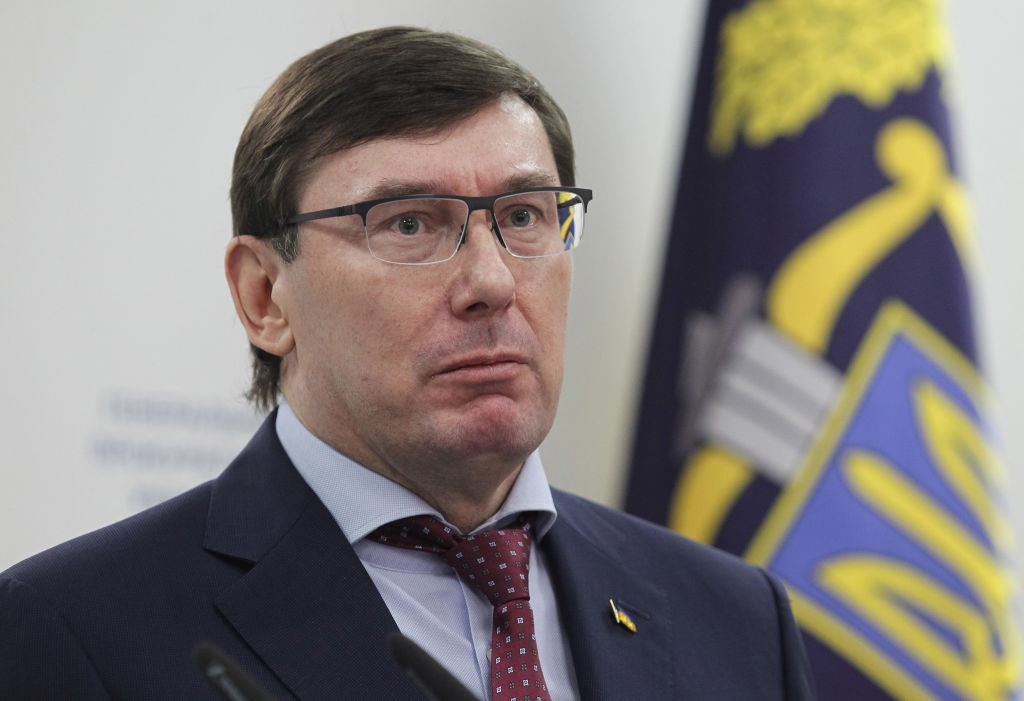
Who is he?
Yuriy Lutsenko served as the Ukrainian Prosecutor General from May 2016 until Aug. 29 this year, a few months after Ukraine’s new president, Zelensky, took office. He formerly served as the head of the country’s Ministry of Interior (which oversees the Ukrainian police, National Guard, and State Border Service) and was a member of the Ukrainian parliament.
He was arrested in December 2010 and received several charges, including for financial crimes, although the European Union argued that the cases against him were politically motivated, and he was pardoned in 2013 by former Ukrainian President Viktor Yanukovych.
How is he involved?
Starting in March 2019, Mr. Lutsenko made a series of public allegations—many of which he later walked back—about the Biden family’s activities in Ukraine, Ukrainian officials’ purported involvement in the 2016 U.S. election, and the activities of the U.S. Embassy in Kyiv, according to the whistleblower complaint.
Trump’s personal lawyer, Rudy Giuliani, met with Lutsenko at least twice—once in New York in January and again in Poland in February—the complaint said.
The whistleblower complaint also alleges that Trump praised Lutsenko during his July 25 phone call and suggested that Zelensky retain him as prosecutor general.
In the summary of Trump’s call that the White House released, Trump does not refer to Lutsenko by name, but he tells Zelensky, “I heard you had a prosecutor who was very good and he was shut down and that’s really unfair.”
When Zelensky tells Trump that he is thinking of replacing the Prosecutor General, Trump tells him that he heard the prosecutor was “treated very badly” although he was “very fair.”
What has he said?
Lutsenko has given numerous interviews to American news media—including several that appear to be contradictory. Some of the interviews include talking points that Trump brought up in his call with Zelensky.
Lutsenko told the Hill in March that he was launching an investigation into allegations that an Ukrainian official attempted to help Democratic nominee Hillary Clinton.
The whistleblower’s complaint said Lutsenko and other Ukrainian officials claimed that Biden had pressured former Ukrainian President Petro Poroshenko to fire the previous Ukrainian Prosecutor General Viktor Shokin in an effort to “quash” an investigation of Burisma Holdings, where Hunter Biden served on the board.
Lutsenko’s deputy told the New York Times in May that Lutsenko was investigating “millions of dollars of payments from Burisma to the firm that paid Hunter Biden.” Burisma Holdings, a Ukrainian natural gas company embroiled in scandal, paid $3.4 million to a company called Rosemont Seneca Bohai in 2014, the Times reported, referring to financial data from the Ukrainian deputy prosecutor. The Rosemont Seneca Bohai, in turn, paid Hunter Biden as much as $50,000 a month, the Times said, citing bank records.
On May 7, Lutsenko’s spokesperson denied to Bloomberg that the office had reopened the investigation into Burisma Holdings or its owner.
Lutsenko then told reporters after Trump’s Ukraine call leaked, that he does not feel that Ukraine has reason to investigate Joe or Hunter Biden. He did, however, acknowledge meeting with Giuliani.
Lutsenko told the BBC on Sept. 29 that he had “nothing, certainly” to prove that Hunter Biden violated Ukrainian law.
Viktor Shokin
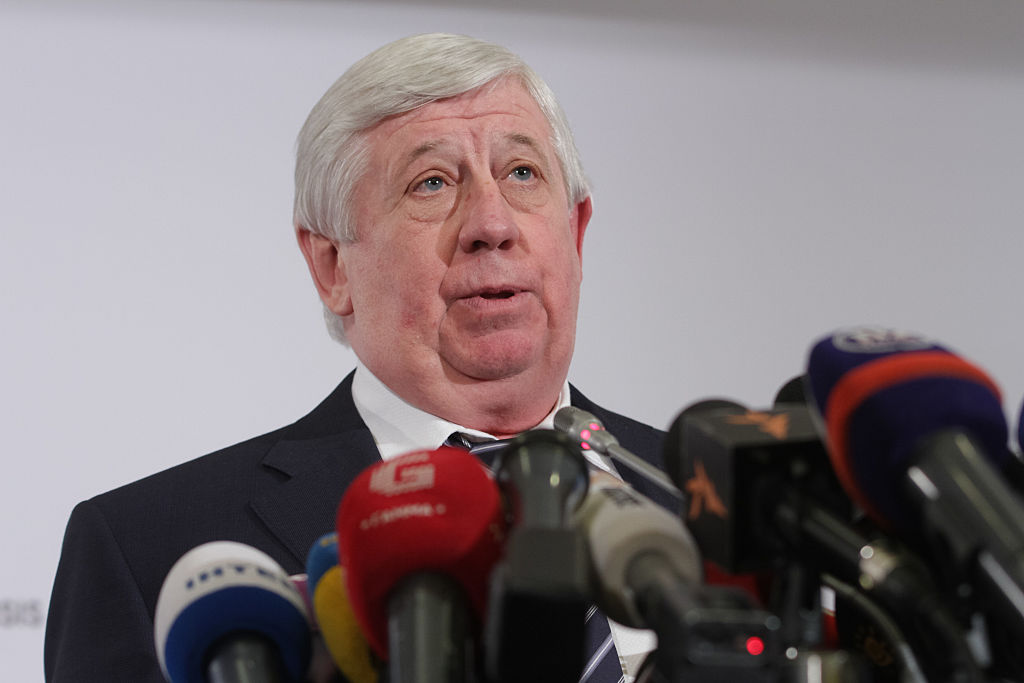
Who is he?
Viktor Shokin was Ukraine’s Prosecutor General from 2015 to 2016. He was succeeded by Lutsenko.
He was removed from his position by Ukrainian parliament after accusations that he was soft on corruption following pressure from then-Vice President Joe Biden and other western governments.
How is he involved?
Shokin’s firing is central to claims Trump has made, without evidence, that Biden used his position as Vice President to protect his son Hunter’s private business dealings.
Trump pressured Ukraine to investigate these allegations, according to the whistleblower complaint.
As Vice President, Joe Biden had been vocal about rooting out corruption in Ukraine. He traveled to Kiev in March 2016 and pressed for Shokin’s removal. Biden later said during a 2018 speech before the Council on Foreign Relations that he had threatened to withhold a billion-dollar loan guarantee until he was assured the prosecutor was ousted. The Ukrainian parliament eventually voted to remove the prosecutor, that same month, in March 2016, after international pressure. Shokin faced widespread accusations of allowing corruption to fester, according to a statement by at least one former Obama Administration official.
Tom Malinowski, former assistant secretary of state in the Obama Administration, tweeted on Sept. 25 that “all of us working on Ukraine wanted this prosecutor gone, because he was NOT prosecuting corruption. So did the Europeans. So did the IMF.”
As chief prosecutor, Shokin had opened an investigation into the owner of Burisma, Mykola Zlochevsky, the Associated Press reported.
There is disagreement over whether Shokin would have actually gone after Burisma.
Daria Kaleniuk, co-founder of the Anti-Corruption Action Center, a Ukrainian organization that works on anti-corruption initiatives in the country, told the BBC that Shokin was not a “tough prosecutor who was willing to investigate Burisma.” If anything, the opposite was true and Shokin was “dumping this investigation,” she said, adding that she has been following the investigation since 2014.
What has he said?
Shokin told the Washington Post earlier this year that he believes he lost his position because he was investigating Burisma. He said that if he was still prosecutor he would have looked into the younger Biden’s qualifications to be a board member, citing Hunter Biden’s lack of experience in working in Ukraine or the energy sector, the Post reported.
Mykola Zlochevsky
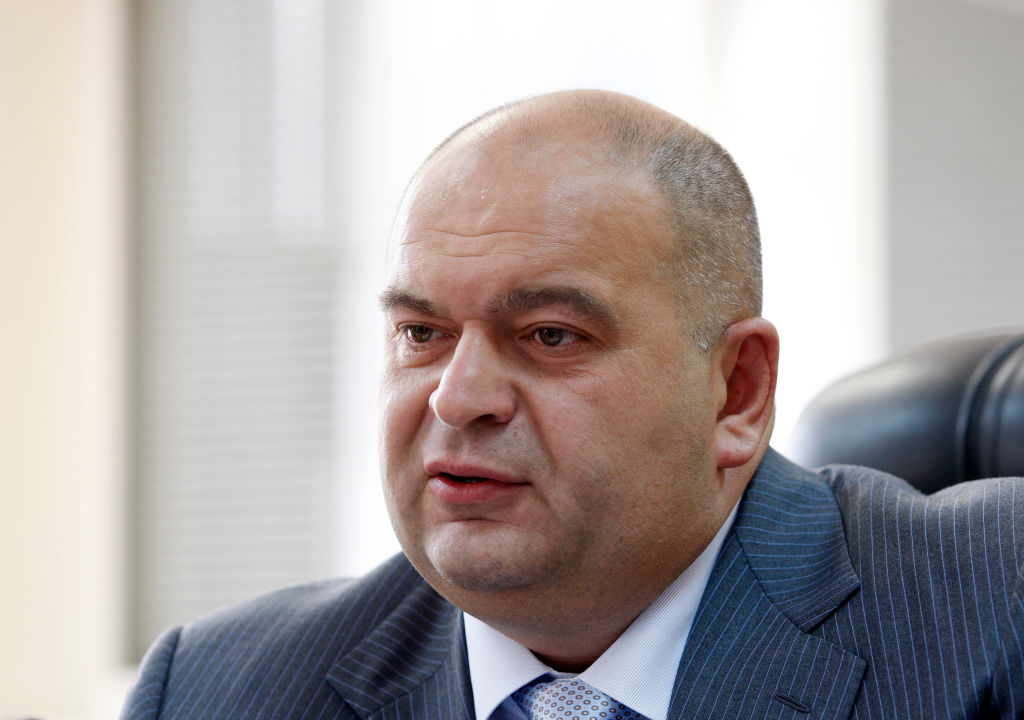
Who is he?
Mykola Zlochevsky is a former Ukrainian ecology and natural resources minister and the owner of Burisma Holdings, an oil and gas industry holding company.
Since Joe Biden’s son, Hunter Biden, joined the board of Burisma Holdings in the spring of 2014, some of the former Vice President’s critics have called the connection inappropriate.
While Joe Biden and the Obama Administration were calling for a crackdown on corruption in Ukraine, Zlochevsky was among the subjects of a money laundering investigation by the United Kingdom’s Serious Fraud Office.
The investigation lasted from 2014 until June 2018, when it was closed due to a lack of evidence. Burisma had announced in winter 2017 that the investigation of Burisma and Zlochevsky had closed. In 2015 remarks about corruption, the U.S. Ambassador to Ukraine, Geoffrey Pyatt, criticized the Ukrainian Prosecutor General’s office for failing to release documents that could have supported the seizure of Zlochevsky’s money, which was being held in the case. He did not say when this occurred.
How is he involved?
The whistleblower’s complaint said that Lutsenko had accused Joe Biden of trying to “quash a purported criminal probe” into Burisma Holdings by pressuring the former Ukrainian President to fire Lutsenko’s predecessor, Shokin.
Trump appears to have referred to these allegations during his July 25 phone call with Zelensky. Trump said that Joe Biden “stopped the prosecution” of a case concerning Hunter Biden, according to the summary of the call.
“Biden went around bragging that he stopped the prosecution so if you can look into it … It sounds horrible to me,” Trump said.
After the whistleblower’s complaint emerged, Lutsenko told multiple news outlets that he did not have any evidence that the Bidens violated Ukrainian law.
What has he said?
Zlochevsky has not spoken to U.S. news outlets about the controversy.
After Hunter Biden joined the company’s board, the chairman of the board of directors said in a statement, “The company’s strategy is aimed at the strongest concentration of professional staff and the introduction of best corporate practices, and we’re delighted that Mr. Biden is joining us to help us achieve these goals.”
The law firm representing Zlochevsky in the United Kingdom, Peters & Peters, said in a statement to the Guardian in 2017 that their client did not violate the law during his time as a minister, saying that he had made his wealth before his time in office.
“Mr. Zlochevsky has followed the letter and spirit of the law in his role as civil servant and has, at all times, held himself to the highest moral and ethical standards in his business dealings and public functions,” the statement said, adding that he had “fallen victim to an entrenched and a cynical programme of smear campaigns and misinformation.”
Joseph Maguire
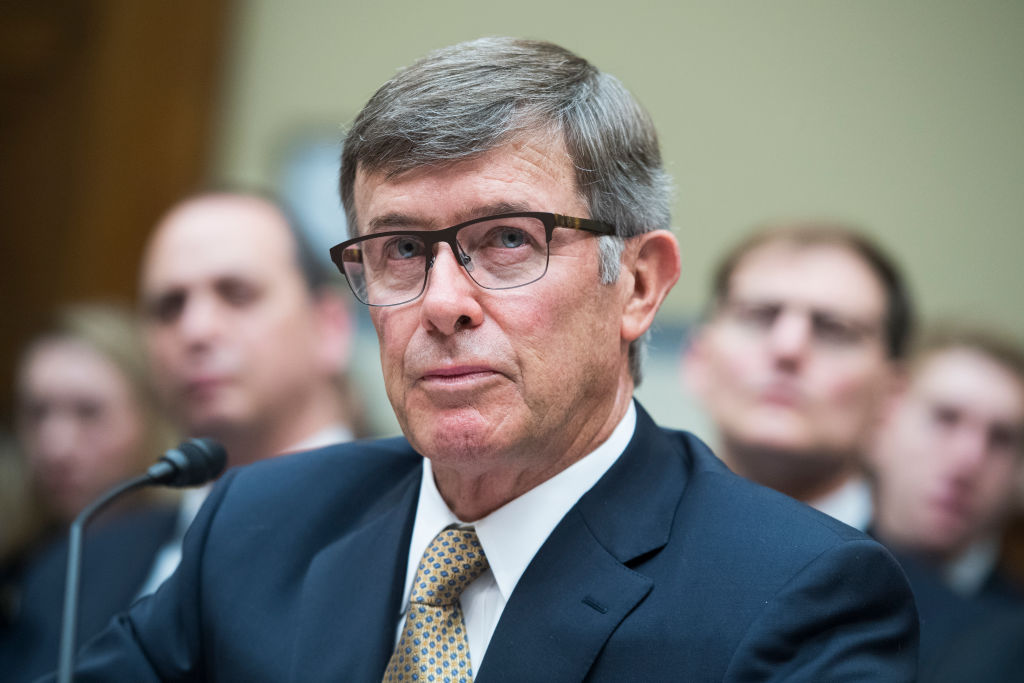
Who is he?
Joseph Maguire is the acting Director of National Intelligence, who stepped in to lead the agency in August after his predecessor Dan Coats stepped down, along with Coats’ deputy. He was previously serving as the head of the National Counterterrorism Center. He has a 36-year military career under his belt and his former colleagues described him as someone who is “not a political hack.”
How is he involved?
Maguire came under fire from House Democrats for withholding the whistleblower complaint from lawmakers for weeks. The Director of National Intelligence is legally required to submit a complaint from the Inspector General to the requisite oversight committee within seven days. But the Inspector General noted in his Sept. 9 letter to the House Intelligence committee that he believed Maguire determined he would not be required to pass along the concern to Congress because for him, the allegations did not meet the standard of an “urgent concern,” as written in law.
What has he said?
Maguire testified before the House Intelligence committee Sept. 26 after being subpoenaed. The retired Navy vice admiral defended his reluctance to share the report during the hearing, saying he believed it may have been covered by executive privilege. He said repeatedly that he sought guidance from officials from the White House and the Justice Department on the matter.
But Intelligence Committee Chairman Rep. Adam Schiff argued that the law still required Maguire to pass along whistleblower complaints to the House and Senate intelligence committees.
Maguire told lawmakers he believed that the whistleblower is “operating in good faith” and “did the right thing.” But he would not explicitly say whether he found the allegation to be “credible” when asked by Schiff. Maguire instead said “it’s not for me to judge” and added that he does not criticize the inspector general for finding the allegation to be credible.
Maguire would not tell lawmakers whether he had spoken to Trump about the complaint, noting that it would be “inappropriate” to comment on the matter because his conversations with Trump are privileged because of his role as acting Director of National Intelligence.
Michael Atkinson
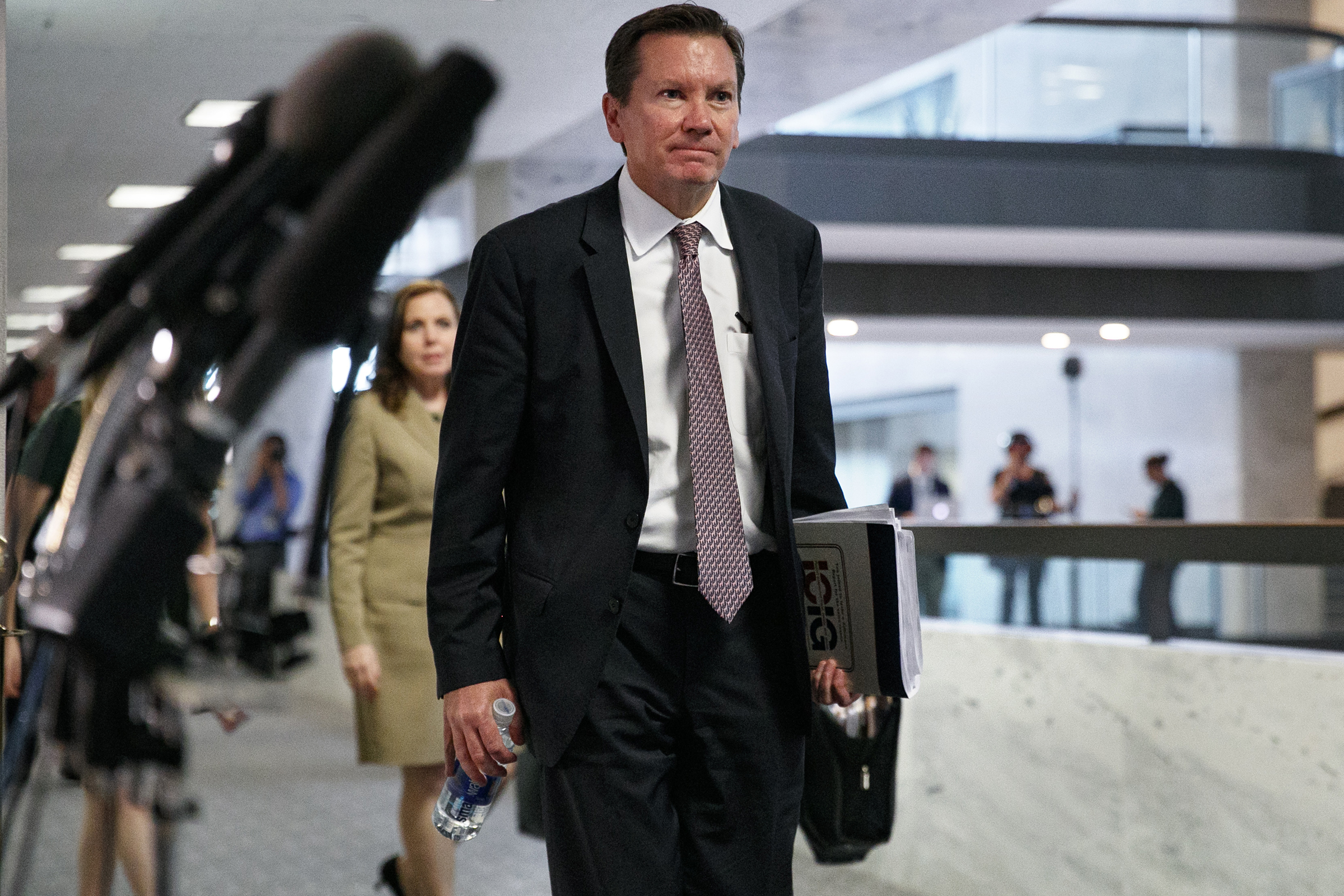
Who is he?
Atkinson is the Inspector General of the Intelligence Community, a position created within the office of the Director of National Intelligence in 2010 to provide oversight.
How is he involved?
Atkinson alerted Congress to the whistleblower complaint in September, calling the document and its contents “credible and urgent.”
Atkinson flagged the complaint in two letters sent to the House Intelligence Committee in September, in which he noted that he could not resolve his differences about how to handle the complaint with Maguire, the acting Director of National Intelligence.
What has he said?
Atkinson said in one of the letters that it appeared that Maguire had no “present intention” of directing the whistleblower on how to contact congressional intelligence committees directly “in accordance with appropriate security practices.” He added that it was his “statutory responsibility” as inspector general to make sure that these committees are “kept currently and fully informed of ‘significant problems and deficiencies relating to programs and activities within the responsibility and authority of the Director of National Intelligence.’”
Atkinson had received the whistleblower’s complaint on Aug. 12 and passed it onto Maguire on Aug. 26, according to a letter Schiff wrote to Maguire. The Director of National Intelligence is legally required to submit a complaint from the IG to the requisite oversight committee within seven days.
Kurt Volker
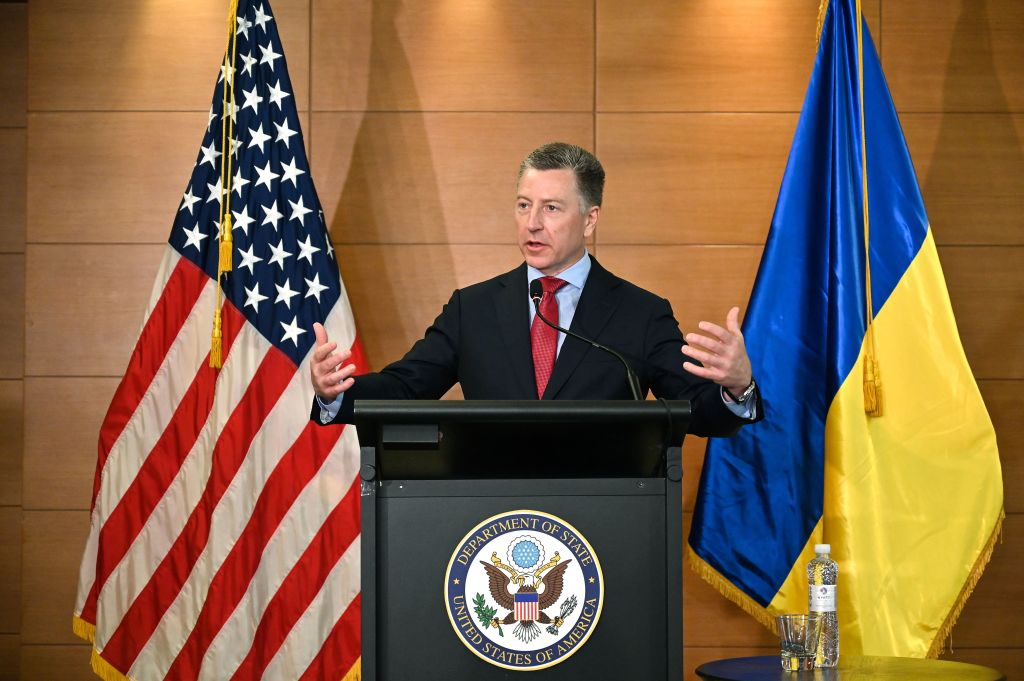
Who is he?
Kurt Volker resigned as the State Department’s special envoy to Ukraine on Sept. 27, two days after the White House released a summary of Trump’s call with Zelenksy, the Associated Press and other outlets reported. He was appointed to the post by then-Secretary of State Rex Tillerson in 2017 to help support the terms of the Minsk agreements, which were intended to achieve peace in the conflict between Russia and Ukraine.
Volker is also the former U.S. permanent representative to NATO and is currently runs the McCain Institute for International Leadership at Arizona State University.
How is he involved?
The whistleblower alleges that Volker and Gordon Sondland, the U.S. Ambassador to the European Union, met with Zelensky and other Ukrainian officials the day after the call with Trump and gave him advice on how to “navigate” the demands Trump had made. The whistleblower wrote that he’d been told about the meetings by U.S. officials who had viewed readouts of the meetings.
The complaint also said that Volker spoke to Giuliani to try and “contain the damage” allegedly caused to American national security by Giuliani’s contact with Ukraine. Volker also spoke with Ukrainian officials and “sought to help Ukrainian leaders understand and respond to the differing messages they were receiving from official U.S. channels on the one hand, and from Mr. Giuliani on the other,” the complaint said.
What has he said?
Volker was scheduled to testify as part of the impeachment inquiry on Oct. 3. He has not yet spoken publicly about the Ukraine scandal.
William Taylor
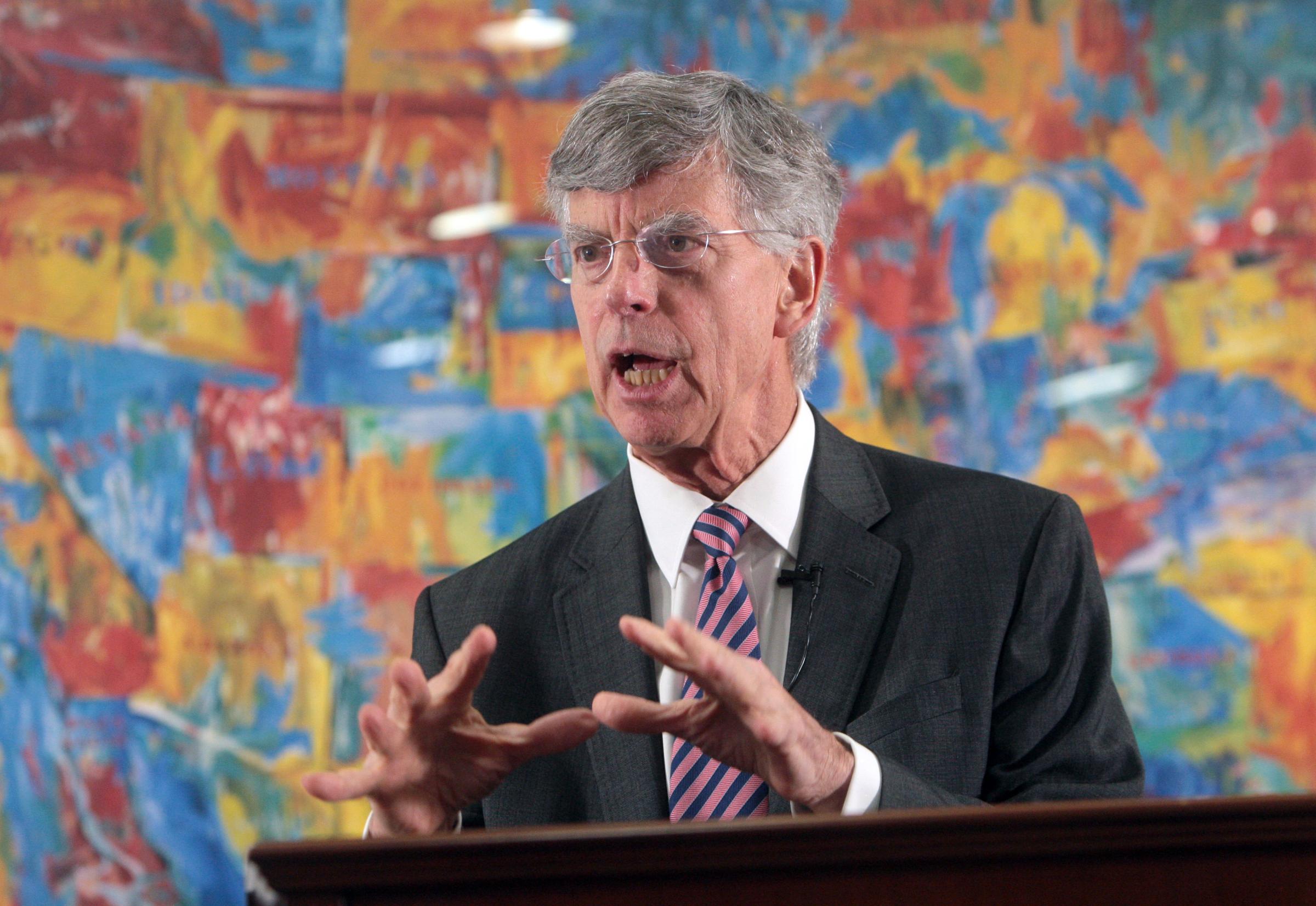
Who is he?
William Taylor serves as the top U.S. diplomat in Ukraine, coming out of retirement in June to run the U.S. Embassy in Ukraine after Ambassador Marie Yovanovitch’s abrupt removal.
He served as U.S. ambassador to Ukraine from 2006 to 2009, and became the Executive Vice President of the nonpartisan think tank the United States Institute of Peace in 2015.
How is he involved?
The 72-year-old diplomat has become an increasingly important figure in the impeachment inquiry after House Democrats released text messages from then-State Department’s special envoy to Ukraine Kurt Volker that included Taylor. Taylor became involved in efforts to leverage U.S. military aid for Ukraine, and the texts appear to show concerns Taylor had about the possible politics involved in setting up a White House meeting.
In a Sept. 1 text with Sondland, Taylor asked, “Are we now saying that security assistance and WH meeting are conditioned on investigations?
More than a week later, in one particularly noteworthy exchange on Sept. 9, Taylor says, “As I said on the phone, I think it’s crazy to withhold security assistance for help with a political campaign.” Sondland responded “Call me.”
A little under five hours later, Sondland responds, “Bill, I believe you are incorrect about President Trump’s intentions. The President has been crystal clear no quid pro quo’s of any kind. The President is trying to evaluate whether Ukraine is truly going to adopt the transparency and reforms that President Zelensky promised during his campaign I suggest we stop the back and forth by text.”
Journalists and politicians have pointed to Taylor’s apparent discomfort as proof that the President was pressuring a foreign government to investigate a political opponent in exchange for foreign aid, which Trump had denied.
Taylor also cautioned about what message withholding aid from Ukraine would send to both the Ukrainians and the Russians. In a Sept. 8 text he writes, “The nightmare is they give the interview and don’t get the security assistance. The Russians love it. (And I quit.)” In a text the next day, Taylor writes “The message to the Ukrainians (and Russians) we send with the decision on security assistance is key. With the hold, we have already shaken their faith in us. Thus my nightmare scenario.”
What has he said?
Taylor testified before Congress in a closed-door hearing on Oct. 22 and was issued a subpoena Tuesday morning. He declined to comment as he entered the session, but lawmakers in the hearing said Taylor gave a long opening statement that filled gaps left by other witnesses. “The testimony is very disturbing,” New York Rep. Carolyn Maloney, who attended the start of the Taylor interview, said.
More Must-Reads from TIME
- Caitlin Clark Is TIME's 2024 Athlete of the Year
- Where Trump 2.0 Will Differ From 1.0
- Is Intermittent Fasting Good or Bad for You?
- The 100 Must-Read Books of 2024
- Column: If Optimism Feels Ridiculous Now, Try Hope
- The Future of Climate Action Is Trade Policy
- FX’s Say Nothing Is the Must-Watch Political Thriller of 2024
- Merle Bombardieri Is Helping People Make the Baby Decision
Write to Sanya Mansoor at sanya.mansoor@time.com and Madeleine Carlisle at madeleine.carlisle@time.com
